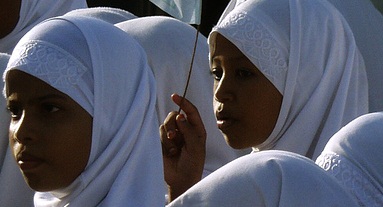Women rights and the Holy Prophet

Under the Arabian pre-Islamic law of status, women had virtually no rights. Islamic law provided women with a number of rights. The reforms affected marriage, divorce, and inheritance. Women were not accorded with such legal status in other cultures, including the West, until centuries later. The general improvement of the status of Arab women included prohibition of female infanticide, and recognizing women's full personhood.
The social system builds up a new system of marriage, family and inheritance; this system treated women as an individual too and guaranteed social security to her as well as to her children. Legally controlled polygamy was an important advance on the various loosely defined arrangements which had previously been both possible and current; it was only by this provision (backed up by severe punishment for adultery), that the family, the core of any sedentary society could be placed on a firm footing.
Under the Arabian pre-Islamic law, no limitations were set on men's rights to marry or to obtain a divorce. So we can say that the institution of marriage, characterized by unquestioned male superiority in the pre-Islamic law of status, was redefined and changed into one in which the woman was somewhat of an interested partner.
'Women were given inheritance rights in a man dominated society that had previously restricted inheritance to male relatives. Islamic legislation brought a great progress; It gave the woman the right, to administer the wealth she has brought into the family or has earned by her own work women were also granted the right to live in the matrimonial home and receive financial maintenance during marriage and a waiting period following the death and divorce.
At the time Islam began, the conditions of women were terrible - they had no right to own property, were supposed to be the property of the man, and if the man died everything went to his sons." Prophet Muhammad (S.A.W.), however, by “Instituting rights of property ownership, inheritance, education and divorce, gave women certain basic safeguards."
At the end we can conclude the Hazrat Muhammad (S.A.W.) granted women rights and privileges in the sphere of family life, marriage, education, and economic endeavors, rights that help improve women's status in society.
Source: imamreza
Add new comment